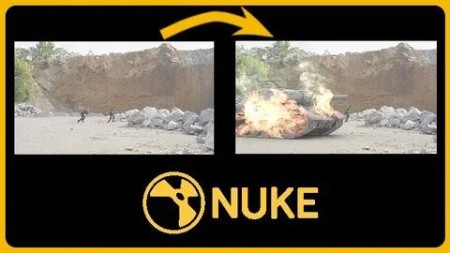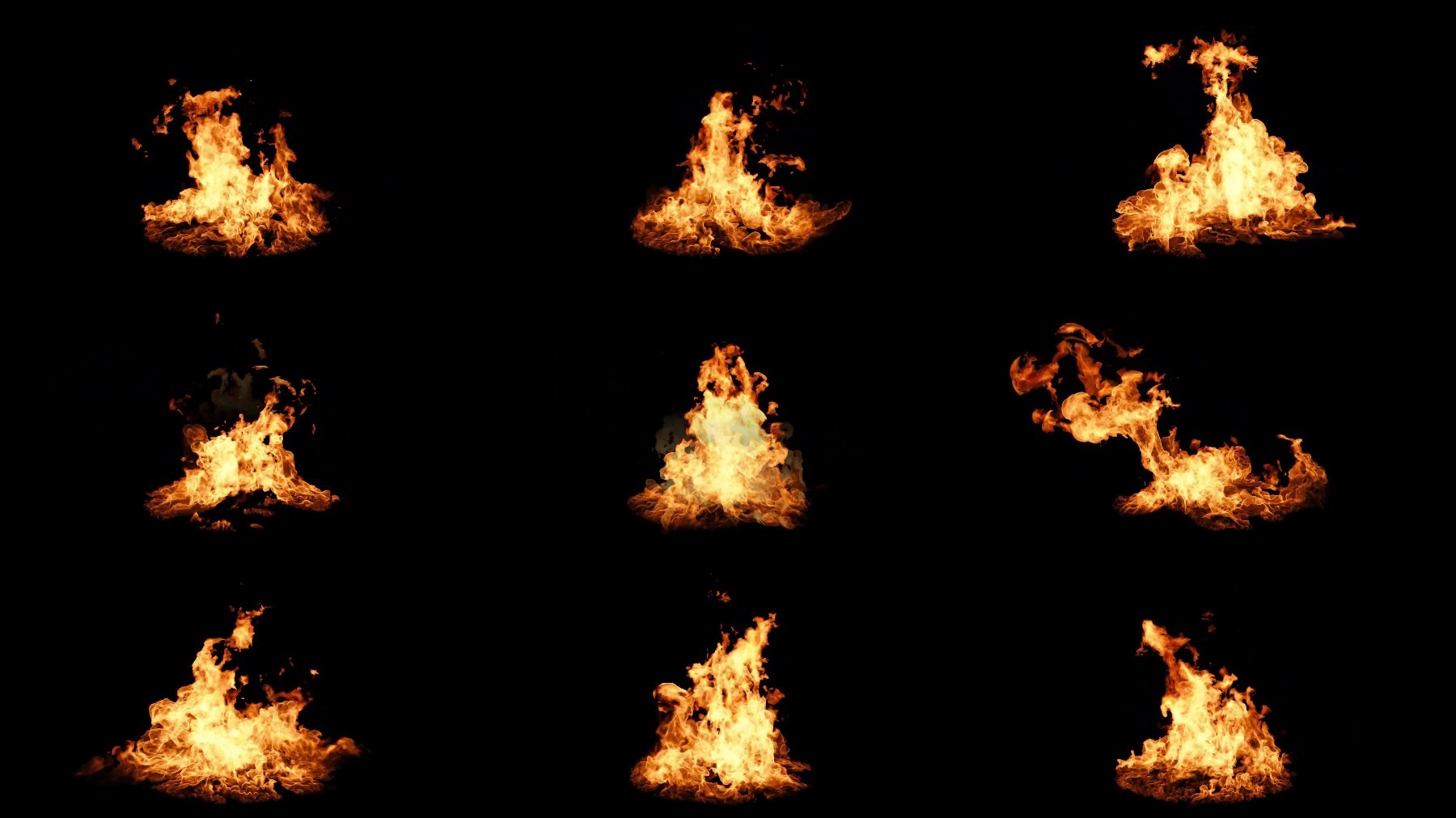Getting Started With Nuke (Entry Level Course)

Getting Started With Nuke (Entry Level Course)
Published 10/2024
MP4 | Video: h264, 1920x1080 | Audio: AAC, 44.1 KHz
Language: English | Size: 4.17 GB | Duration: 7h 18m
Nuke basic beginner level course
What you'll learn
Navigating the interface
Working with channels
Merging images
Color correction
Image transformations and reformatting
Tracking and stabilizing
Extracting 3D passes from EXR images and compositing
Rotoscoping
Keying
Filters, warping, and more
Requirements
No previous experience needed
Eagerness to learn and perseverance!
Description
By the end of this beginner-friendly course, you'll feel confident and ready to advance to higher levels in Nuke. I understand that Nuke can seem intimidating, so I've crafted this course to ease you into its complexities without overwhelming you with unnecessary theory. Instead of diving into every tool or feature, I focus on the essentials, giving you a solid foundation to build on. This approach makes it ideal for anyone looking to get started with Nuke without getting bogged down by too much detail.If, for any reason, you're not satisfied after completing the course, you're covered by a 30-day money-back guarantee, which means there's no risk involved. However, I'm confident you'll enjoy the experience, as this course is specifically designed to make your first steps in Nuke smooth, enjoyable, and rewarding.Nuke can be challenging, especially if you're new to it or have been learning on your own without a structured approach. Many people find it even more complex than software like After Effects, but that's where this course comes in. It's built for two types of learners:Those who are brand-new to Nuke and need a clear learning path.Those who may have tried other courses but want to start fresh, with guidance from the basics.Whether you're a complete beginner or someone looking for better structure, this course offers an easy-to-follow, step-by-step approach. Each lesson is rooted in practical projects that are simple yet essential, helping you understand Nuke in a way that doesn't feel overwhelming.Throughout this course, you'll cover all the foundational topics necessary to get you started in Nuke, such as:Navigating the interfaceWorking with channelsMerging imagesColor correctionImage transformations and reformattingTracking and stabilizingExtracting 3D passes from EXR images and compositingRotoscopingKeyingFilters, warping, and moreEach topic is broken down into easy steps, making it clear and straightforward for you to follow. By the end, you'll be ready to take on more advanced projects with confidence.
Overview
Section 1: Introduction
Lecture 1 course trailer
Section 2: understanding merge node
Lecture 2 overview
Lecture 3 merge node
Lecture 4 3 merging two photos with merge node
Lecture 5 complete project with merge node
Section 3: Become more familiar with node system
Lecture 6 1 become familiar with nuke node system workflow part 1
Lecture 7 become familiar with nuke node system workflow part 2
Lecture 8 create alpha from copy node
Lecture 9 create alpha with shuffle node
Section 4: simple project ( tank on fire )
Lecture 10 getting footage
Lecture 11 import tank image and do track
Lecture 12 shadow pass of tank
Lecture 13 grading tank
Lecture 14 rotoscope tank barrel
Lecture 15 adding fire
Lecture 16 smoke part1
Lecture 17 smoke part2
Lecture 18 heat wave
Lecture 19 exporting
Lecture 20 finishing with project setting
Section 5: composite 3d render passes that come in seperate images
Lecture 21 overview of rendered passes
Lecture 22 importing passes and intragrating
Lecture 23 create alpha channel
Lecture 24 creating our own custom channel
Lecture 25 light wrap
Lecture 26 color correct only the channel
Lecture 27 create shadow pass from alpha
Lecture 28 using erode node to delete dark edge issue
Lecture 29 color match
Lecture 30 crytomattes part 1
Lecture 31 crytomattes part 2
Lecture 32 finishing
Section 6: composite 3d render passes that comes in single exr image
Lecture 33 overview before we use exr
Lecture 34 create channels in nuke and export in exr from nuke
Lecture 35 way to extract passes from exr image
Lecture 36 manage shuffle node for compositing passes
Lecture 37 extract pass and use it
Lecture 38 extracting and using occlusion and reflect passes
Lecture 39 shadow pass
Lecture 40 cryptomattes
Lecture 41 finishing
Section 7: rotoscoping
Lecture 42 create roto
Lecture 43 roto attributes
Lecture 44 seperate with rotoscope and color correct
Lecture 45 rotoscope method 1
Lecture 46 rotoscope method 2
Lecture 47 rotoscope method 3
Lecture 48 clone with roto
Section 8: Filter
Lecture 49 blur
Lecture 50 motionblur part 1
Lecture 51 motionblur part 2
Lecture 52 depth of field with zdepth pass
Lecture 53 depth of field in live footage
Section 9: keying
Lecture 54 keyer
Lecture 55 keyer part 2
Lecture 56 keylight
Lecture 57 primatte
Section 10: Essential
Lecture 58 reformat
Lecture 59 crop
Lecture 60 sky replace
Lecture 61 understand RGB channel
Lecture 62 RGB match
Section 11: Tracker
Lecture 63 export sequences for this project
Lecture 64 tracker node part 1
Lecture 65 tracker node part2
Lecture 66 track offset
Lecture 67 average tracks
Lecture 68 manual keyframe track
Lecture 69 stablize
Lecture 70 match move
Lecture 71 corner pin
Section 12: warp and morph
Lecture 72 grid warp node
Lecture 73 gridwarp animation
Lecture 74 grid warp morph
Lecture 75 spline warp node
Lecture 76 boundary and pin
Lecture 77 spline warp to image
Section 13: Temporal operations
Lecture 78 retime node
Lecture 79 optical flow
Lecture 80 frame offset
Lecture 81 freeze frame
Section 14: conclusion
Lecture 82 conclusion
People who have no experience with digital compositing and are curious to learn Nuke,People who have dozens of nuke tutorials and cant understand anything

RapidGator
https://rapidgator.net/file/22b0227d0296502daae9fc3dfb6d2604/Getting.Started.With.Nuke.entry.level.course.part1.rar
https://rapidgator.net/file/0603f24b9abb3e0ae0493516b55dc88e/Getting.Started.With.Nuke.entry.level.course.part2.rar
https://rapidgator.net/file/c067dfb641ed5e4debf48df999cce391/Getting.Started.With.Nuke.entry.level.course.part3.rar
FileStore
TurboBit
https://turbobit.net/hwef4lonyyds/Getting.Started.With.Nuke.entry.level.course.part1.rar.html
https://turbobit.net/kdd9o6nhr4hq/Getting.Started.With.Nuke.entry.level.course.part2.rar.html
https://turbobit.net/2okyi00wysfn/Getting.Started.With.Nuke.entry.level.course.part3.rar.html
